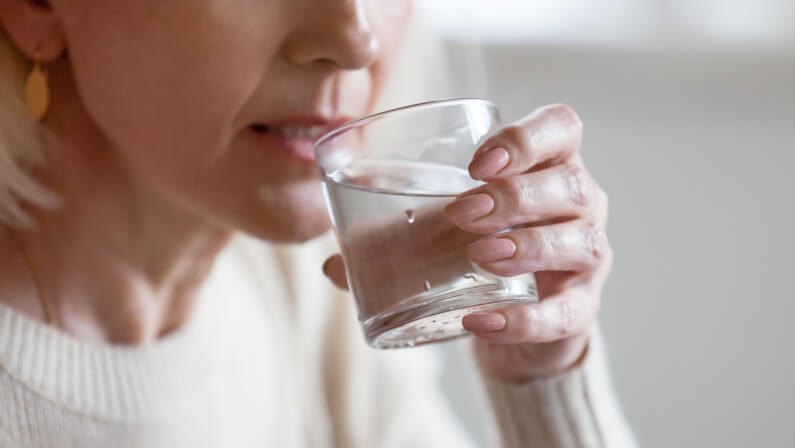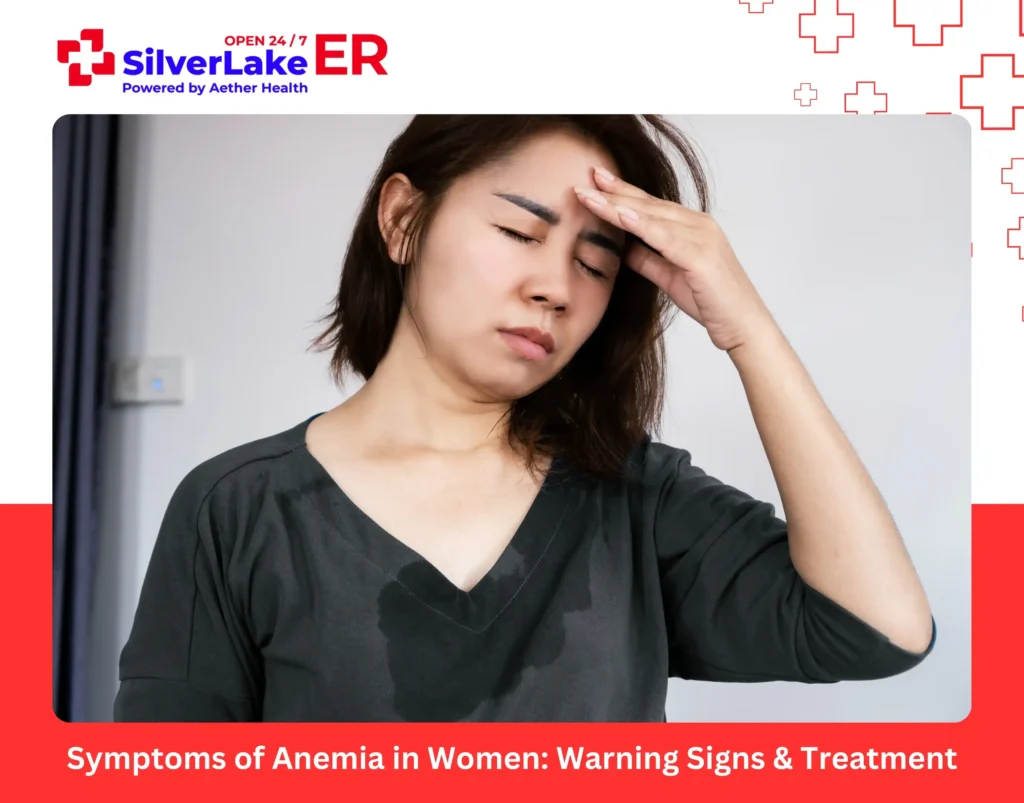Dehydration is a common condition that occurs when your body loses more fluids than it takes in. While mild cases of dehydration can often be managed at home, there are instances when seeking medical attention becomes imperative. This article explores when to go to the ER for dehydration, the symptoms to watch out for, and when a trip to the urgent care or ER for dehydration is necessary
What is dehydration and how does it occur?
Dehydration happens when your body loses more fluids and electrolytes, such as sodium and potassium, than it gains. This imbalance can occur due to various factors, including excessive sweating, vomiting, diarrhea, inadequate fluid intake, or a combination of these factors. When your body doesn’t have enough fluids to function properly, it can lead to a range of health issues.
What are the causes of dehydration?
Dehydration occurs when your body loses more fluids than it takes in. This imbalance can result from various factors, each contributing to a reduction in your body’s overall fluid levels. Understanding the causes of dehydration can help you take preventive measures and maintain proper hydration.
Here are some common causes of dehydration:
Inadequate Fluid Intake
Not drinking enough water or fluids is one of the primary causes of dehydration. If you’re not replenishing the fluids your body loses through urination, sweat, and other bodily functions, you can become dehydrated.
Excessive Sweating
Engaging in vigorous physical activity, exercising in hot weather, or being in a high-temperature environment can lead to excessive sweating. Sweating is your body’s natural cooling mechanism, but it also results in the loss of fluids and electrolytes.
Vomiting and Diarrhea
Gastrointestinal illnesses, such as viral infections or food poisoning, can cause frequent vomiting and diarrhea. These conditions lead to rapid fluid loss and can quickly result in dehydration, especially if fluids are not replaced promptly.
Fever
A high fever increases your body’s temperature and metabolic rate, leading to increased fluid loss through sweat and respiration. Illnesses that cause fever can contribute to dehydration if fluids are not replenished adequately.
Urinary Loss
Certain medications, medical conditions, or lifestyle factors can lead to increased urination, causing the body to lose more fluids than usual. Conditions like diabetes and diuretic use can contribute to urinary fluid loss.
Alcohol and Caffeine Consumption
Both alcohol and caffeine have diuretic effects, meaning they can increase urine production. Consuming these substances without adequate fluid intake can lead to dehydration.
Certain Medical Conditions
Some medical conditions, such as kidney disease, diabetes, and adrenal gland disorders, can affect fluid balance and increase the risk of dehydration. These conditions may impact the body’s ability to regulate fluids and electrolytes.
Age
Infants and elderly individuals are at a higher risk of dehydration due to their reduced ability to conserve water and regulate fluid balance. Children have higher fluid requirements relative to their body weight, and the elderly may have diminished thirst sensation.
Travel and Altitude
Traveling to areas with higher altitudes or climates significantly different from what you’re accustomed to can lead to increased fluid loss through increased respiratory rate, sweating, and other factors.
Heat-Related Conditions
Heatstroke and heat exhaustion, often resulting from prolonged exposure to high temperatures and inadequate fluid intake, can cause rapid dehydration and require immediate medical attention.
Burns and Wound Healing
Severe burns or significant wounds can lead to fluid loss due to increased evaporation and fluid leakage from damaged skin.
Common Symptoms of Dehydration
Recognizing the early signs of dehydration is of paramount importance as it can guide you in deciding when to seek medical assistance. Dehydration occurs on a spectrum, ranging from mild to severe, and understanding the progression of symptoms can help you take appropriate action to prevent further complications.
Thirst
One of the earliest indicators of dehydration is a heightened sense of thirst. When your body lacks adequate fluids, it sends signals to your brain to encourage you to drink more water. Pay attention to persistent feelings of thirst, as they may indicate the need to increase your fluid intake.
Dry Mouth and Dry Skin
Dehydrated individuals often experience a dry, sticky sensation in their mouths. Additionally, their skin may feel parched and lack its usual elasticity. Dry, chapped lips and cracked skin can also be signs of mild dehydration.
Dark Urine
Monitoring the color of your urine can provide valuable insights into your hydration status. Dark yellow or amber-colored urine suggests concentrated urine due to reduced fluid intake. In well-hydrated individuals, urine tends to be pale yellow or straw-colored.
Fatigue
Dehydration can lead to feelings of fatigue and low energy levels. Insufficient fluids impair blood circulation and the transport of nutrients, leading to a sense of lethargy and reduced physical and mental performance.
Severe Symptoms of Dehydration
As dehydration progresses, more severe symptoms may manifest:
Dizziness and Lightheadedness
A decrease in blood volume due to dehydration can result in reduced blood flow to the brain, leading to dizziness and lightheadedness. Changes in body position, such as standing up quickly, can exacerbate these symptoms.
Rapid Heartbeat
Dehydration puts stress on the cardiovascular system, causing the heart to work harder to pump blood. This can lead to an elevated heart rate and palpitations.
Confusion and Irritability
Dehydration can affect cognitive function and mood. As fluid levels drop, you may experience difficulty concentrating, confusion, irritability, and even mood swings.
Sunken Eyes
In severe cases of dehydration, the body prioritizes vital organs over non-essential tissues. As a result, the eyes may appear sunken or hollow, indicating a significant fluid imbalance.
Dry Skin and Reduced Sweating
Dehydrated individuals often have dry, cool skin due to reduced sweat production. Sweating is the body’s natural cooling mechanism, and when it’s compromised, it can lead to overheating and heat-related illnesses.
Decreased Urination
Severe dehydration can lead to a significant decrease in urine output or even complete cessation of urination. This is a critical sign that the body is conserving fluids to maintain essential functions.
When To Go To The ER For Dehydration?
When is dehydration an emergency? While mild dehydration can often be managed with oral rehydration methods, there are instances when you should consider going to the emergency room (ER), such as Aether Health – SilverLake ER.
Severe dehydration requires immediate medical attention, especially if you experience these (or any severe symptoms listed above):
- Intense thirst and inability to drink fluids
- Excessive vomiting or diarrhea
- Dark, concentrated urine or no urine output
- Rapid breathing and elevated heart rate
- Confusion, lethargy, or fainting
- Sunken fontanelle (soft spot) in infants
What are the dangers of severe dehydration?
Severe dehydration can have serious consequences for your health. It can lead to electrolyte imbalances, kidney problems, heat-related illnesses, and even life-threatening complications. Without prompt treatment, organs may not function properly, and the risk of complications increases significantly.
What age group is most at risk for dehydration?
While anyone can become dehydrated, certain age groups are more susceptible. Infants, young children, the elderly, and individuals with chronic medical conditions may be at higher risk. Children and the elderly often have reduced fluid reserves and may not be able to communicate their symptoms effectively.
How Dehydration Is Assessed by Medical Professionals
Assessing dehydration accurately is a crucial step in providing appropriate medical care and intervention. Medical professionals employ a comprehensive approach that involves both clinical assessment and laboratory tests to evaluate the severity of dehydration and determine the best course of treatment.
Here’s how dehydration is assessed by medical professionals:
Clinical Assessment
During a clinical assessment, healthcare providers gather information about the patient’s medical history, symptoms, and any recent events that may have contributed to dehydration. This information helps establish a baseline and guide further evaluation.
The clinical assessment includes:
- Vital Signs
- Skin Turgor
- Mucous Membranes
- Fontanelle Assessment (for Infants)
- Behavior and Mental Status
Laboratory Tests
Laboratory tests are essential for obtaining quantitative data on the patient’s fluid and electrolyte balance. These tests help confirm the severity of dehydration, assess electrolyte imbalances, and guide treatment decisions.
Common laboratory tests include:
- Blood Tests
- Urine Tests
- Complete Blood Count (CBC)
- Arterial Blood Gas (ABG) Analysis
- Electrocardiogram (ECG)
By combining clinical assessment and laboratory test results, medical professionals can accurately diagnose the severity of dehydration and identify any underlying issues. This comprehensive approach allows for timely and targeted treatment interventions, such as fluid replacement and electrolyte correction. An early and accurate assessment is essential to prevent complications associated with dehydration and ensure the patient’s well-being.
What to Expect During an ER Visit for Dehydration
During an ER visit for severe dehydration, medical staff will prioritize fluid replacement to restore electrolyte balance and prevent complications. Intravenous (IV) fluids may be administered to ensure rapid hydration. Additionally, healthcare providers will address any underlying causes contributing to dehydration.

Can dehydration be prevented?
Prevention is key to avoiding severe dehydration. It involves maintaining a consistent intake of fluids and adjusting it based on environmental factors, age, and health status.
By following these guidelines, you can significantly reduce the risk of dehydration and its potential complications.
- Hydration: Stay hydrated. Drink an adequate amount of fluids throughout the day, regardless of activity level or weather conditions.
- Hot Weather and Exercise: Increase fluid intake during hot weather and when engaging in physical activities to replace fluids lost through sweat.
- Infants, Children, and Elderly: Closely monitor them. Pay attention to fluid intake for infants, young children, and the elderly, who may have a higher risk of dehydration.
- Illness: Be vigilant about fluid replacement when experiencing illnesses that cause vomiting, diarrhea, or fever, as these conditions can lead to rapid fluid loss.
When do you need an IV for dehydration?
An intravenous (IV) solution may be needed for dehydration when the condition becomes severe and oral rehydration is not sufficient or practical. IV fluids are a more direct and rapid way to restore the body’s fluid and electrolyte balance, especially when dehydration is significant or accompanied by complications.
When is oral rehydration sufficient for treating dehydration?
Mild to moderate dehydration can often be managed at home with oral rehydration solutions. These solutions contain a balanced mix of water, sugar, and electrolytes to help restore hydration levels. However, if symptoms worsen or don’t improve after trying oral rehydration, seeking medical care is essential.
Can I go to urgent care for dehydration?
Yes, you can typically go to an urgent care facility for dehydration, especially if your symptoms are not severe. Urgent care centers are equipped to provide medical evaluation and treatment for a wide range of non-life-threatening conditions, including mild to moderate dehydration.
Does dehydration require follow-up care?
After receiving treatment for dehydration, it’s important to follow up with your healthcare provider. They can assess your progress, ensure your electrolyte levels have normalized, and provide guidance on preventing future episodes of dehydration.
Can dehydration be a sign of underlying health issues?
In some cases, recurring or chronic dehydration may be a sign of underlying health problems. Conditions such as diabetes, kidney disease, and certain gastrointestinal disorders can increase the risk of dehydration. If you experience frequent dehydration, it’s important to discuss your symptoms with a healthcare professional.

Take Dehydration Seriously
Dehydration is a condition that should not be taken lightly, especially when severe symptoms are present. Recognizing the signs of dehydration and knowing when to seek medical help can make a significant difference in preventing complications and ensuring your overall well-being. While mild cases can often be managed at home or in urgent care settings, severe dehydration warrants a trip to the ER for immediate treatment and intervention.
Prioritizing hydration and understanding the importance of timely medical attention, especially in severe cases, can help you stay healthy, hydrated, and well-prepared to tackle life’s challenges head-on. In such critical situations, facilities like Aether Health – SilverLake ER stand ready to provide specialized care and expertise. Contact us today.









